
What is in this article?
Almost every item that facilitates or speeds up your daily life or makes it more comfortable requires electricity. You need electricity when charging electronic items, cooking, or even when having fun. However electricity may be dangerous if you are not cautious enough.
According to the U.S. National Fire Protection Association, two-thirds of home fires caused by incorrectly installed or damaged cables. Among other causes are plugs and transformers. Fires are not the only thing that incorrectly installed cables cause. Inappropriate use of electric devices also causes electric shocks or burns.
But don't you worry, because a few simple measures you can take at home can save you from potential hazards.
So what are these potential hazards and what can you do to avoid them?
Potential Hazards at Home and the Actions You May Take
Corrosion in electric cables, power overloads, incorrectly used extension cables, and device failures can cause electrical leakages at home and, what's worse, these can result in fires.
Electrical leakages, on the other hand, can give people electric shocks. Among the effects of electrical leakages on human body are heart attacks, fainting, and loss of memory and balance. But you can reduce the possibility of such problems by taking simple measures.
Plugging Another Cable to Extension Cables and Overloading the Plugs
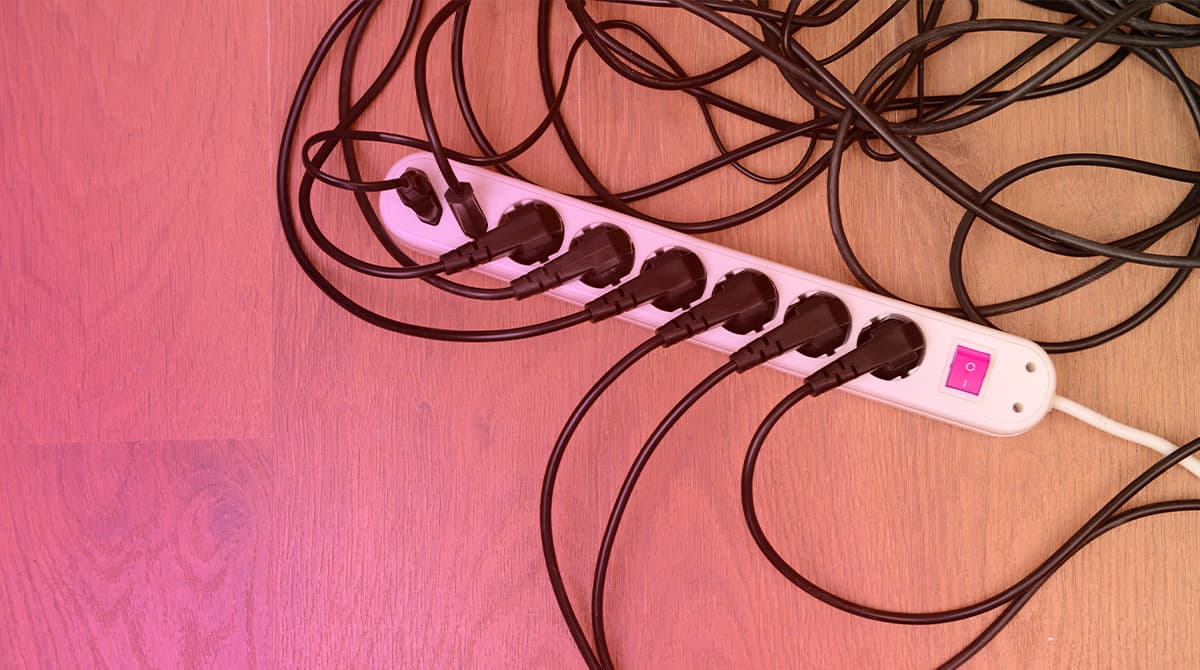 Almost everyone use multi plugs to increase the number of devices they may operate with wall sockets. Although this may seem like a good solution, this isn't always the safest idea. Because electric circuits are designed to offer a limited amount of electricity.
Almost everyone use multi plugs to increase the number of devices they may operate with wall sockets. Although this may seem like a good solution, this isn't always the safest idea. Because electric circuits are designed to offer a limited amount of electricity.
Electric circuits consist of circuit breakers, cables, and devices. Electricity processed by every device is added to the total load. When you exceed the rated load, this will result in circuit breaker opening and interrupting the entire power to the circuit. If the circuit doesn't include a breaker, the excessive load may cause cables to get hot. This, in the end, can melt the cable insulation. Melting cable insulation causes the possibility of a fire.
The most apparent signal of an overloaded electric circuit is the switch interrupting the system and cutting off the entire power. Other signals, albeit hard to notice, are as follows:
- Lights going dim when too many electric devices operate at the same time
- Hot plugs
- Burning smell from plugs or cables
- In case of any of these signals please seek help from a professional. Please be noted that not only multi plugs but also extension cables can cause the same problem. Extension cables can also cause wall plugs to overheat or the electric circuit to overload.
Many people prefer adding another cable to their extension cables to increase the number of plugs or to extend the cable's reach. This makes it more likely to exceed the maximum load. The following measures you can take against the most frequent electric problems in houses will help you minimize this risk while at the same time making extension cables and plugs safer:
- Do not forcefully cut off the connection of an electric device by unplugging the cable.
- Keep cables away from heat and water sources.
- Replace the extension or wall plugs that seem worn or damaged.
- Never use such worn or damaged extension or wall plugs.
- Do not position the cables of extension plugs under carpets, doorways or any other place where they can be exposed to overloading.
- Calculate the average amount of electricity you plan to use. Use extension plugs that are compatible with your calculations.
- Remember that extension plugs are for temporary use. If you need a permanent solution please seek advice from a professional.
Especially if your house or its electrical installation is old and you doubt its durability consult an installation professional. As today’s technologies use a lot of power, old installations may not be able to handle such currents. Old installations or switches may have worn connectors which increase the risk of a fire.
Children's Curiosity in Electricity Plug and Cable Safety
All children try to explore the world around them. Thus, safety is particularly important in households with children. You can take the following measure to make your plugs and cables safer:
- Cover the Plugs: Electric plugs may pique children's curiosity. Therefore, plugs with self-covers may be a good idea.
- Hide the Cables: Children may want to play with cables. It can only take seconds for a child to pull off an electric cable and remove the plug from the wall. Therefore you may want to reorganize your furniture so that cables, especially those used for TVs or sound systems, are out of reach of children.
- Do Not Overload the Plugs: It is understandable to want to connect multiple devices to the same plug. Although this may seem to offer convenience the plug may be exposed to excessive load due to voltage created. This risks an electric-related fire.
- Keep Electric Devices Out of Reach of Children: Keep items such hair dryers, blenders, and toasters inside cupboards to reduce the risk of damage to their cables. This helps you minimize the problems that may be caused by device cables.
- Do Not Leave the Cable Plugged in if the Device Is Off: Leaving the adaptors of a device that is off plugged in for prolonged times can make cables and adaptors to overheat thus causing short circuits. This particularly applies to mobile phones. If you leave your mobile charger plugged in your children may want to play with it.
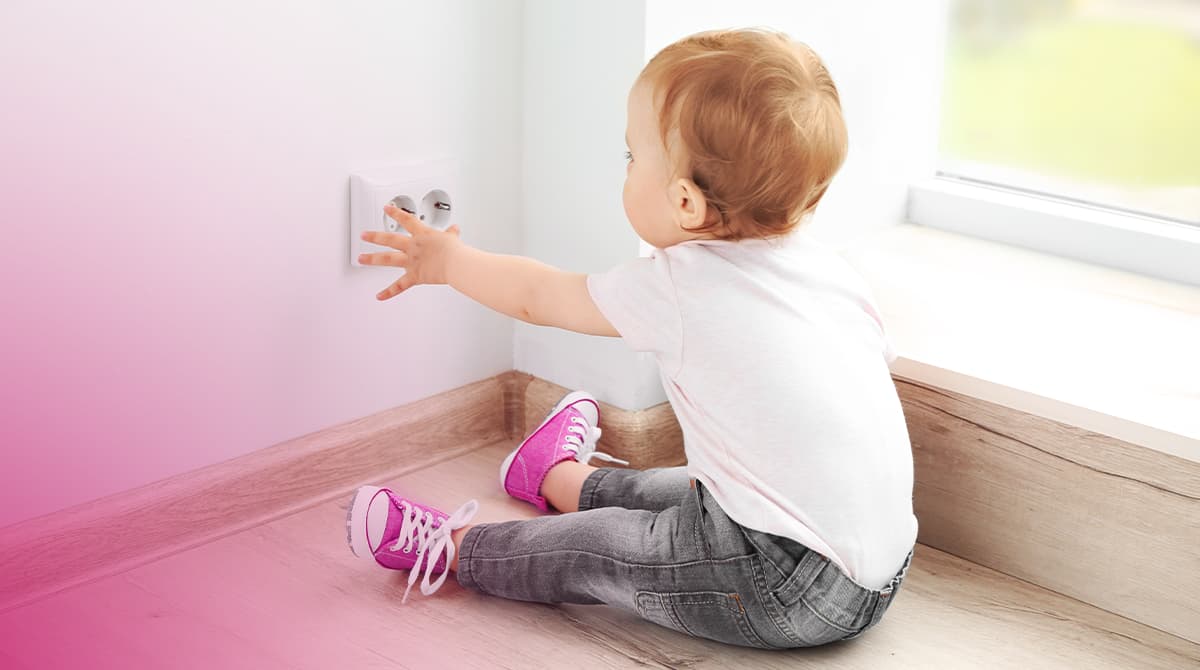
Electricity Safety for Pets
Households with pets should take some measures just like households with children. Pets are also very curious. Especially cables carry risks both for you and for them. The following measures can help you ensure the safety of your pets when it comes to electricity:
- Hide the Cables: Both cats and dogs can stumble over cables and fall while running around in the house. Plus, when they are looking for something to chew, cables may attract their attention.
- Position the Electric Heater Directly: Especially when portable heaters are on, do not leave your pets in the room unsupervised.
- Do Not Leave Electric Devices Around: Both cats and dogs tend to sleep on hot devices such as computers. This may cause ventilating plugs and the device to overheat.
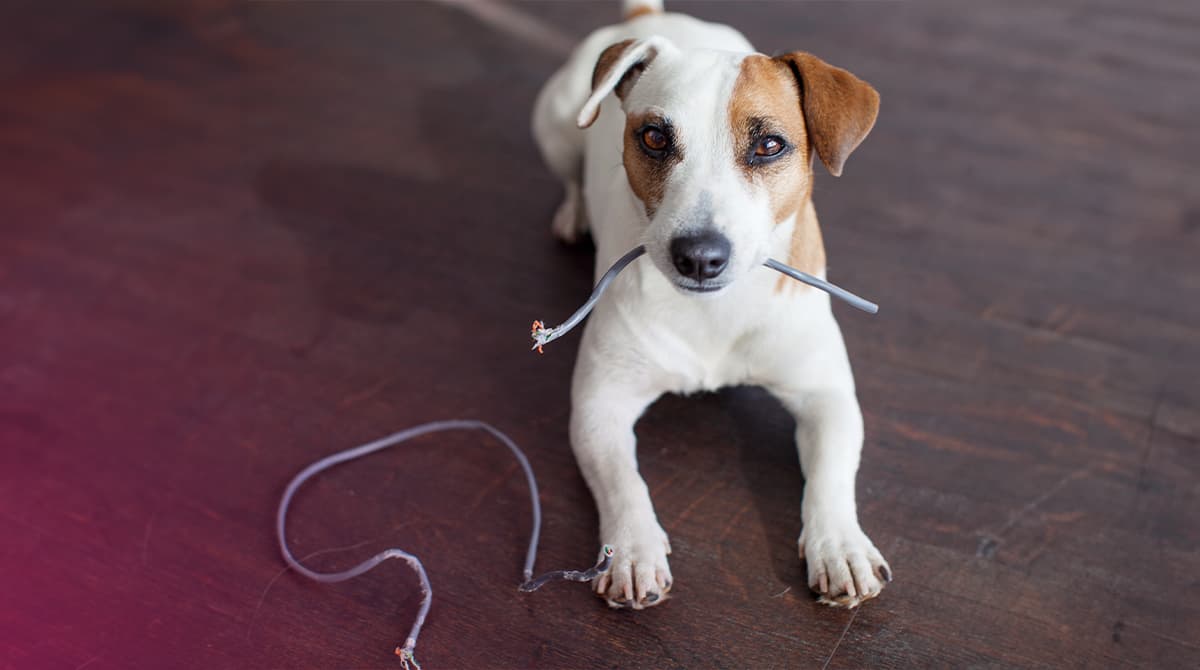
Plugs and Electric Devices in Bathrooms
Bathrooms can be the most dangerous areas in terms of electric safety. Because water should be kept away from electric devices and plugs. Especially as skin loses endurance when wet, electric shocks suffered in bathroom or in shower maybe worse compared to other cases. Therefore, bathrooms require special measures for electrical installation. Among these measures are:
- Plugs: They should be positioned at least three meters away from the bathtub or the shower.
- Lighting: Covered ceiling lamps should be preferred. Uncovered lights should be positioned in a place where you won't be able to reach after shower.
- Heating: Central heating is the safest way to keep a bathroom warm. But if you're using an electric heater, you should fix it somewhere far away from the bathroom or the shower.
- Portable Household Electric Appliances: It is not recommended to use devices such as hair dryers or electric razors in the bathroom.
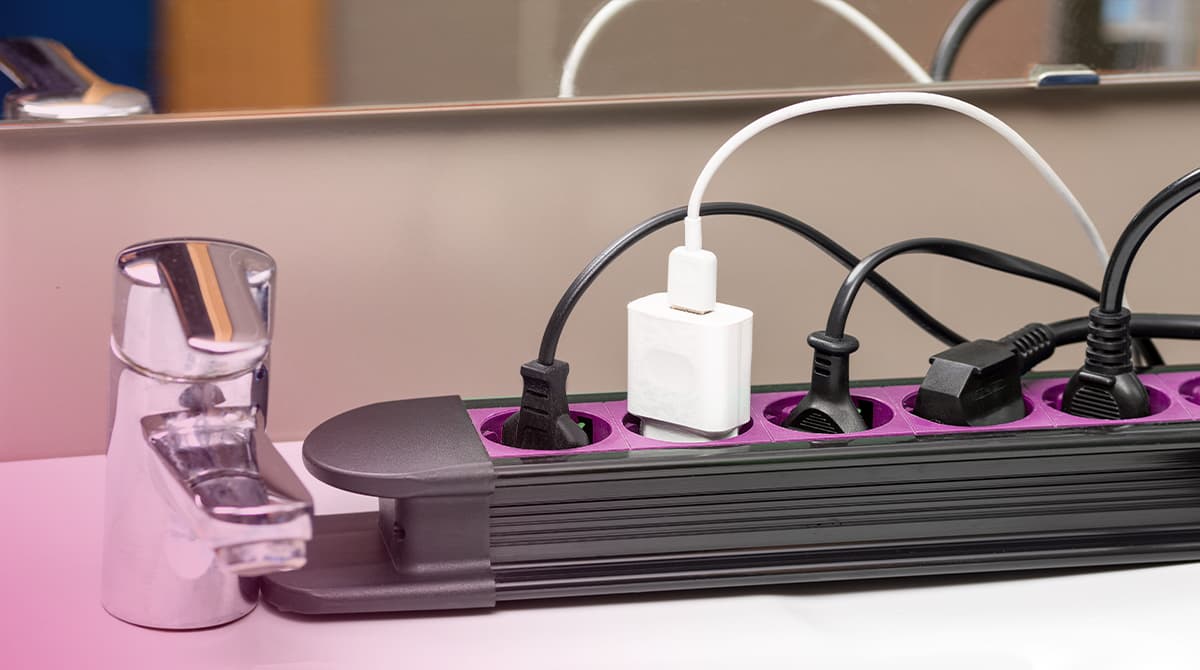
Other Electricity Problems in Houses
It is only natural to experience electric problems in your house. However please consult a professional to learn about what is behind these problems and to ensure your safety.
The most frequent electric problems in houses include electric fluctuations or voltage drops, trembling lights, and lights going on and off in addition to damaged cables and plugs or device failures.
Check out the following article for more details: Electricity Problems in Houses.
Measures Against Fire Risks
Most of house fires stem from the incorrect use of electricity. You can take the following measures to avoid fire risks:
- You can use an RCD device which automatically cuts off the electric in case of any failure.
- It is important to have the electrical installation checked by a competent person. You should call an electrician immediately when you move into a new house or once every five years thereafter.
- Do not excessively rely on one electric adaptor by connecting high-voltage devices such as kettles, irons or electric heaters into one single plug.
- If you're using an electric heater, make sure to keep the heater away from paper, curtains, or your furniture.
- Check whether your cables have corrosion before plugging in your devices. Never use devices with damaged cables.
- Check your plugs regularly. If you notice any traces of burns in your plugs consult a competent electrician to see if you need any replacements or not.
Other Measures to Take
Having your washing machines, fridges, deep freezers and dishwashers frequently checked is one of the best measures. Plus, you should also have your electrical fuse checked against damages that may occur over years. What's also important is that you should carefully select your plugs and replace them when necessary.
-
Have Your Fuses and Electric Devices Regularly Checked
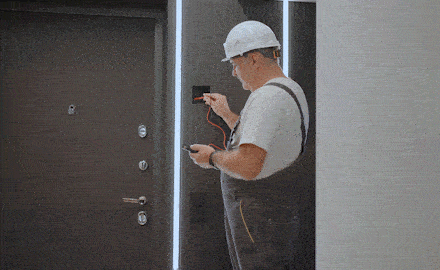 Electric fuses are vital to avoid damage to devices due to excessive load and even to reduce fire risk.
Electric fuses are vital to avoid damage to devices due to excessive load and even to reduce fire risk.
The primary purpose in using electric fuses is to protect devices against excessive current and prevent short circuits and incompatible loads. In an emergency the fuse will warn you by cutting off the connection. Wires inside the fuse can get damaged over years due to current. Therefore you should have it checked very often.
Another reason why electric failures occur is the faults and short circuits in electronic devices. Always consult a professional before installing or using these devices to ensure your safety. Also be reminded that devices can suffer from corrosion over time and that therefore you should regularly have them checked for maintenance purposes.
-
Watch Out for Hot Electric Devices
All electronic devices produce heat when in use. This heat is caused by the fact that the energy inside the device turns into heat. It is normal to feel this heat as long as it is at a normal level. However excessively heated devices may breakdown. As a result of this breakdown your device may even become irreparable. In addition, highly heated devices carry a risk of explosion. Thus you should be careful with how much your electric devices heat up.
Especially when the fuse blows during use it means the electricity that flows through it is too much for the fuse. If you experience this problem a lot please have the electronic device and the fuse checked by a professional immediately.
-
Voltage Protector Plugs
Voltage protector plugs are the easiest way to protect electronic devices against power fluctuations. When these plugs are connected correctly they direct excessive voltage and current to a grounding cable. Thus they prevent excessive current from flowing through your devices.
Fluctuations due to high voltage especially occur in buildings where electrical installations are not grounded. Voltage protector plugs will both protect your devices and reduce the risk of fire due to short circuits.
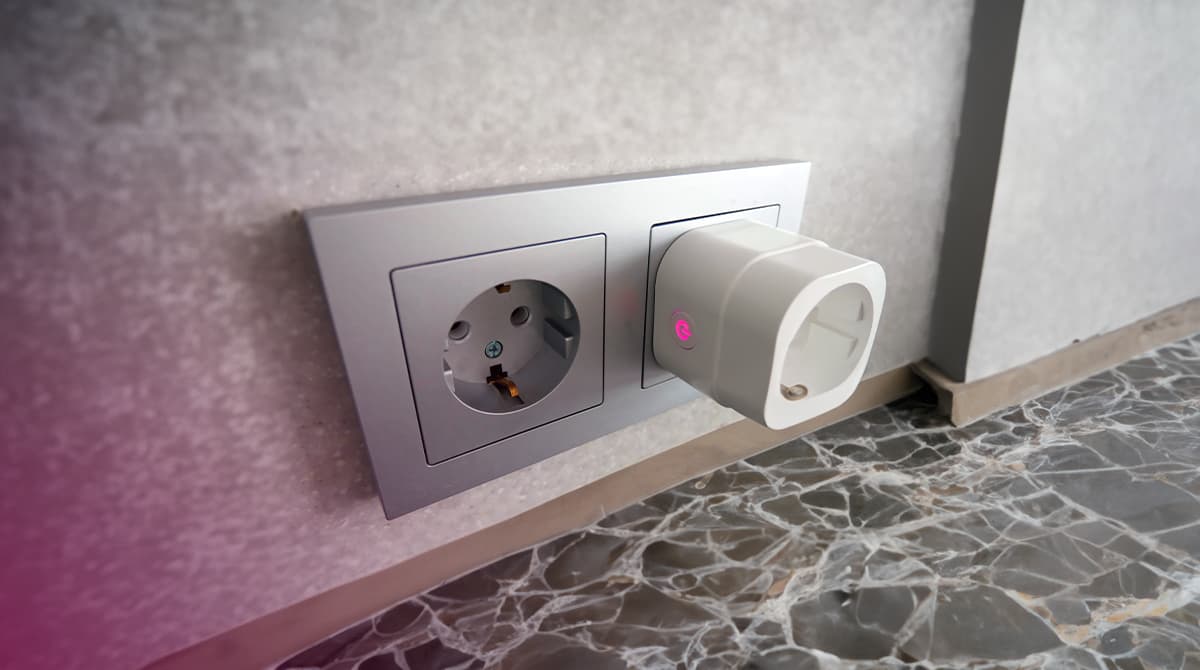
-
Building Grounding
The electric current in the cabling system of your building consists of the electron flow inside the metal circuit cables. Grounding helps these electrons to be directed to earth i.e. discharging the negative energy and ensuring a balance. Normally the current goes back to earth through the neutral cable in the electricity system. A failure to some extent during this process of going back to earth can cause short circuits in devices due to the hot current.
Electrical grounding ensures an electrical installation with a grounding cable to avoid this hazard. In case of any failure while the current is going back to earth, the current is directed to the grounding cable. Therefore the building grounding is one of the best things you can do to use electricity safely in your building.
You can share this post with your loved ones so that they learn what measures to take for safe electricity use in houses.

 Online Services
Online Services Application Inquiry
Application Inquiry Pay Assurance Fee
Pay Assurance Fee Query Installation Number
Query Installation Number Compensation Fee Inquiry
Compensation Fee Inquiry Automatic Payment Order Inquiry
Automatic Payment Order Inquiry Partnership
Partnership


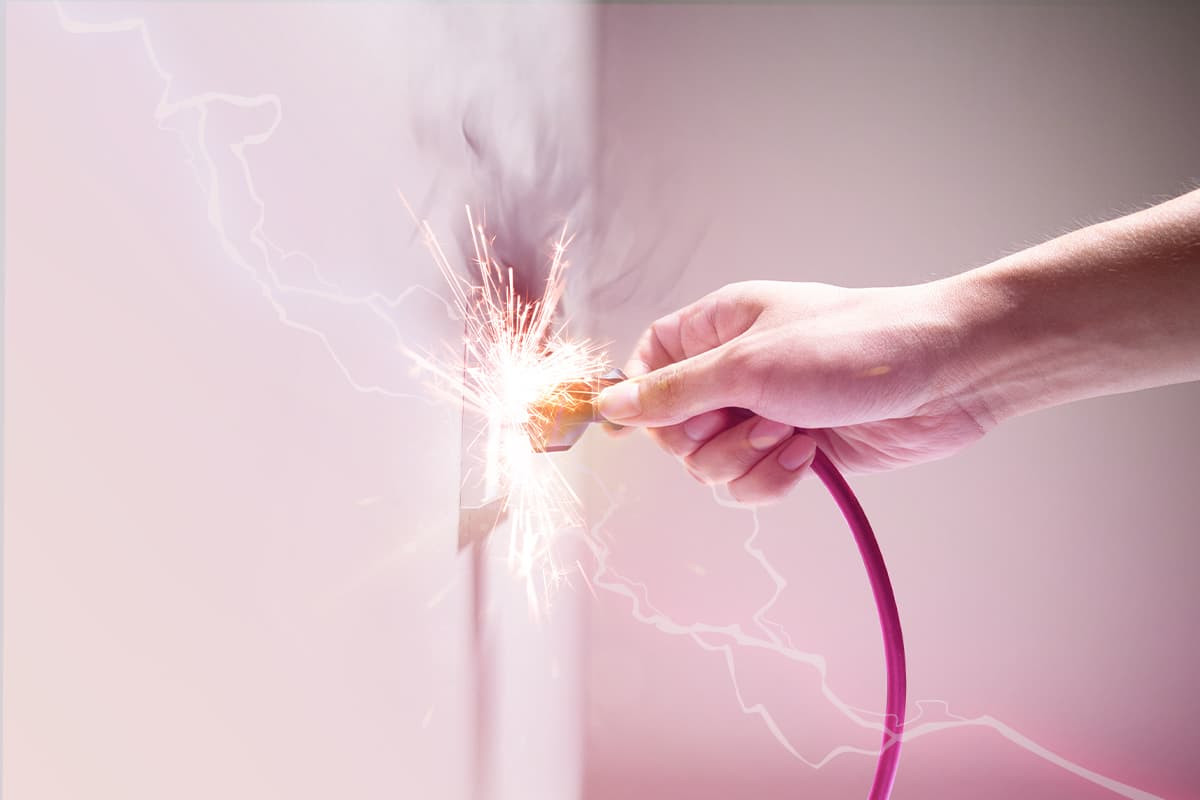
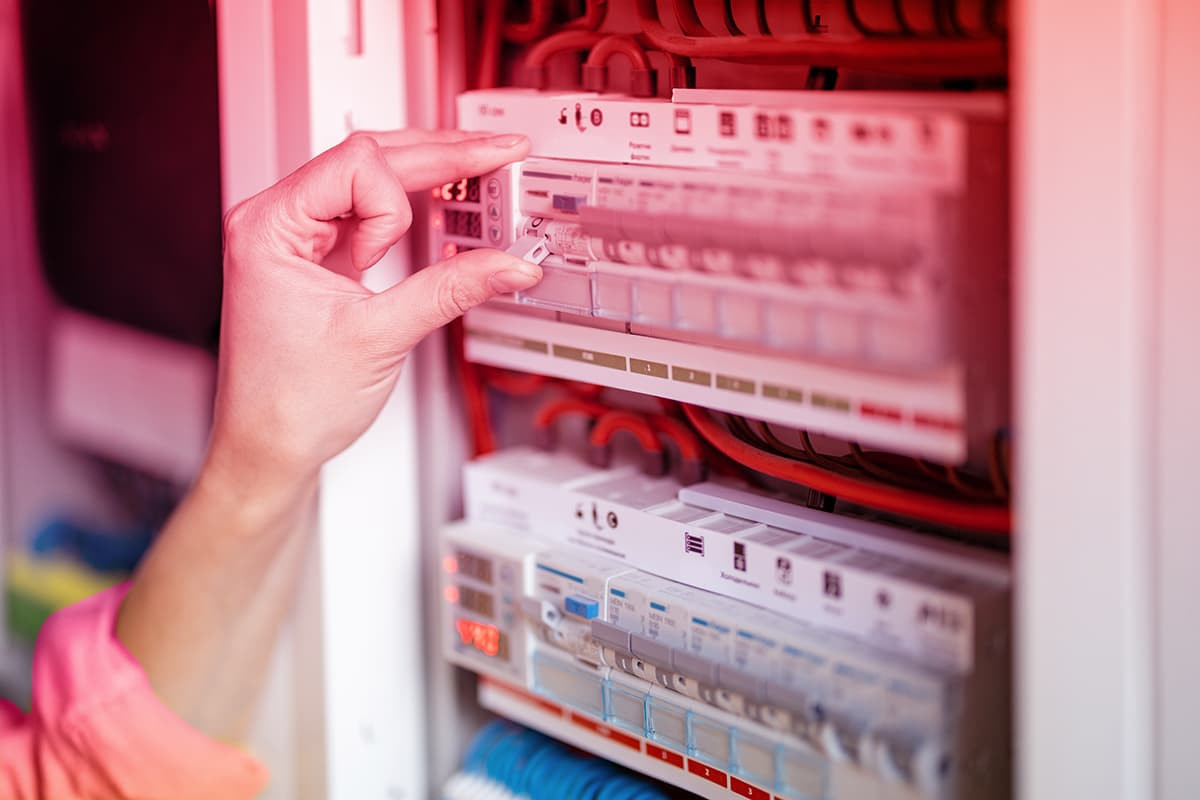
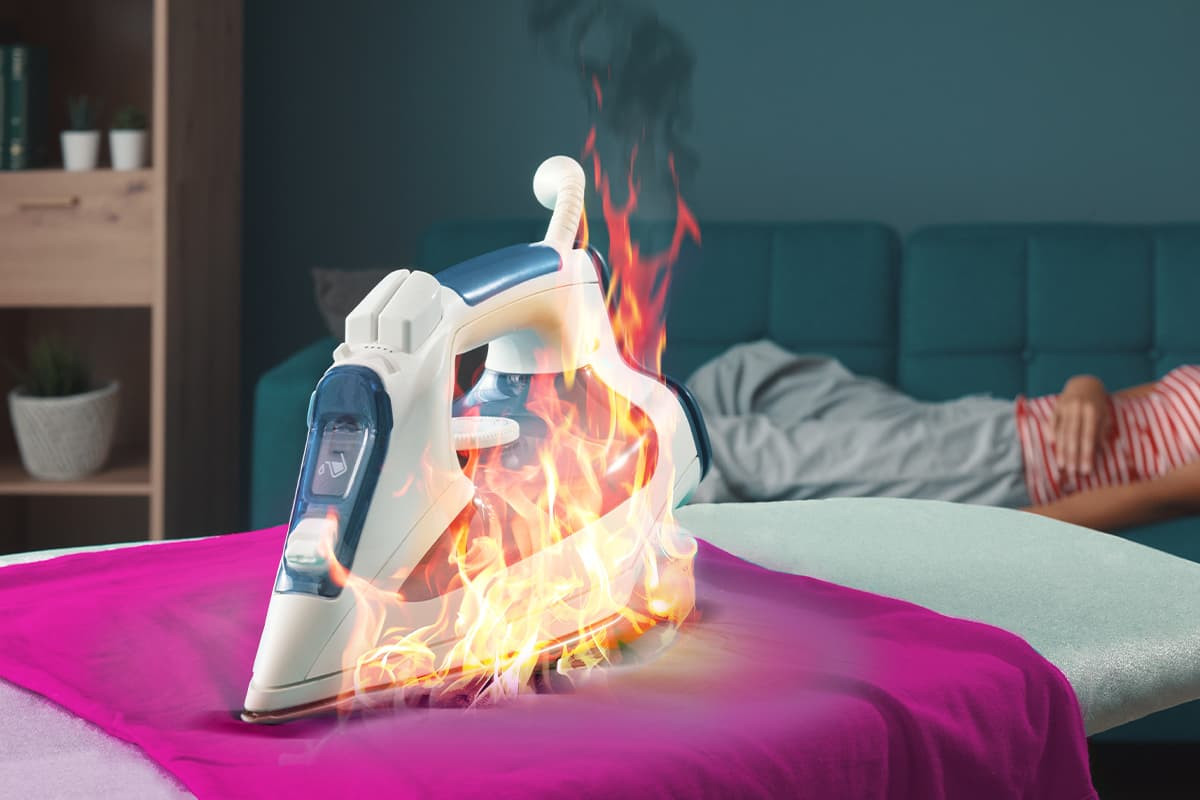
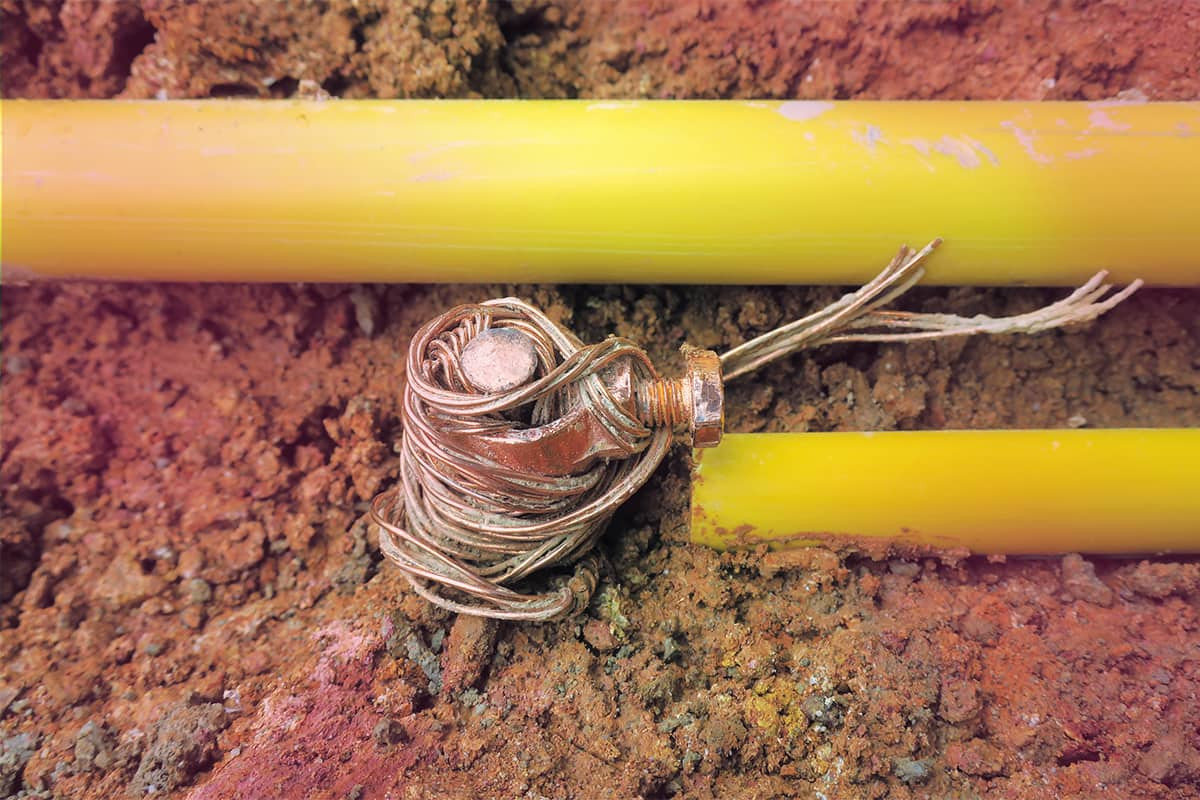
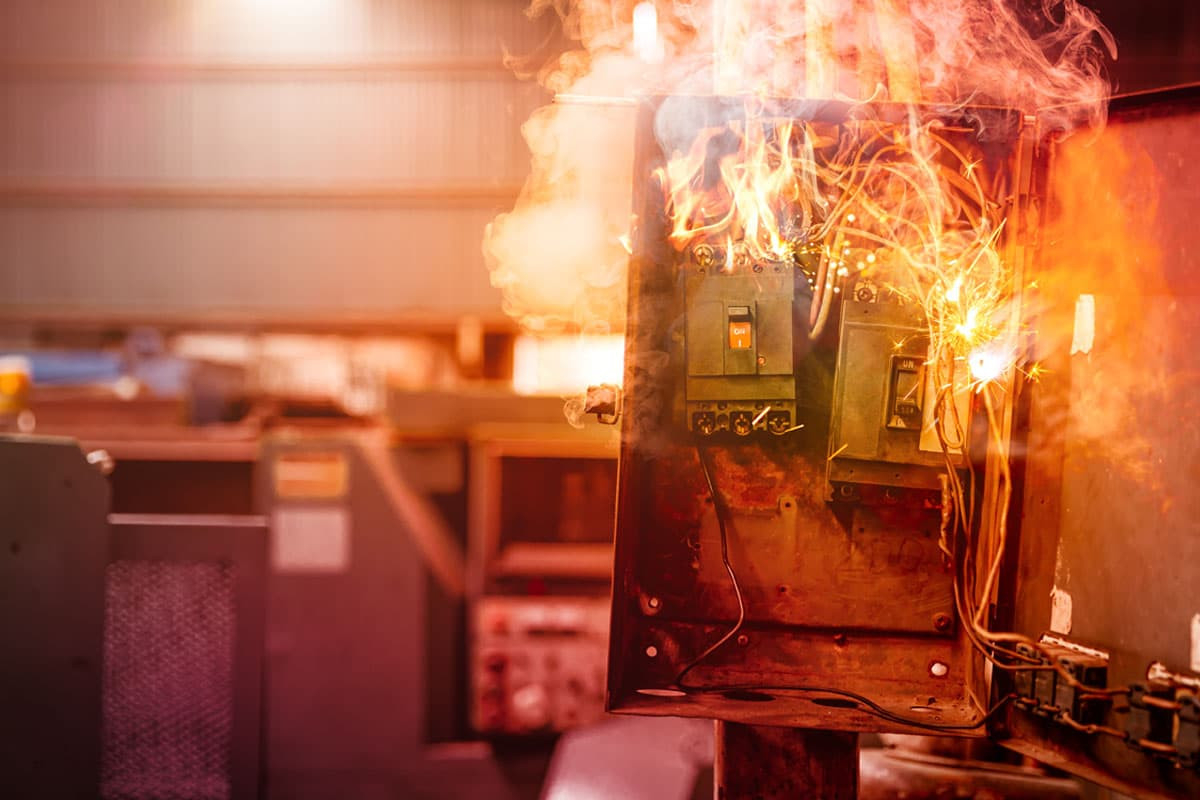
Leave a Comment